Search
Summary 
Loading AI-generated summary based on World History Encyclopedia articles ...
Search Results
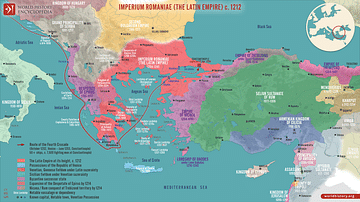
Definition
Empire of Nicaea
The Empire of Nicaea was a successor state to the Byzantine Empire, or rather a Byzantine Empire in exile lasting from 1204 to 1261 CE. The Empire of Nicaea was founded in the aftermath of the sacking of Constantinople during the Fourth Crusade...

Image
First Council of Nicaea
Icon from the Mégalo Metéoron Monastery in Greece, representing the First Ecumenical Council of Nicaea in 325 CE, with the condemned Arius in the bottom of the icon.

Definition
Council of the Indies
The Council of the Indies (El Real y Supremo Consejo de las Indias) operated from 1524 to 1834 and was the supreme governing body of the Spanish Empire in the Americas and Spanish East Indies. Reporting directly to the monarch, the Council...

Definition
Council of Chalcedon
The Council of Chalcedon was called in 451 CE by the Roman Emperor Marcian (r. 450-457) to settle debates regarding the nature (hypostases, "reality") of Christ that had begun at two earlier meetings in Ephesus (431 CE and 439 CE). The question...
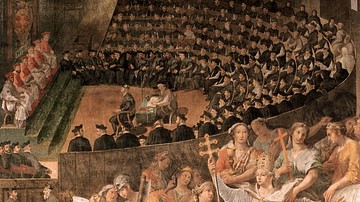
Definition
Council of Trent
The Council of Trent (1545-1563) was a meeting of Catholic clerics convened by Pope Paul III (served 1534-1549) in response to the Protestant Reformation. In three separate sessions, the council reaffirmed the authority of the Catholic Church...
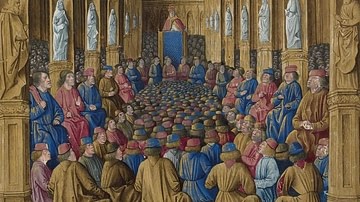
Definition
Council of Clermont
The Council of Clermont in central France was held in November 1095 and witnessed Pope Urban II's (r. 1088-1099) historic call for the First Crusade (1095-1102) to capture Jerusalem for Christendom from its Muslim occupiers. The Pope's speech...
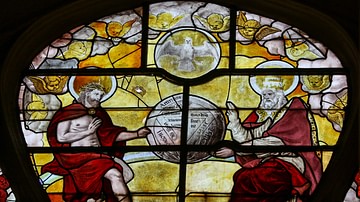
Definition
Trinity
The Christian doctrine of the Trinity (from the Latin trinus, meaning "threefold") professes that there is one God, but three eternal and consubstantial persons (aspects): the Father, the Son, and the Holy Spirit. The Father is the God of...
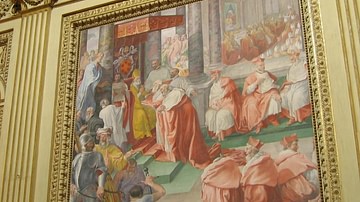
Article
Canons of the Council of Trent
The Canons of the Council of Trent (1545-1563) were rules one was expected to follow in order to be a member of the Catholic Church and, according to the Church's teachings, merit the grace of God and eternal life in heaven after death. The...
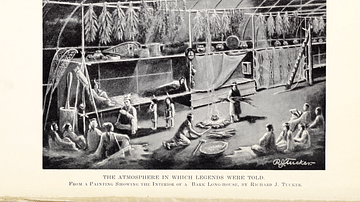
Article
De-Ka-Nah-Wi-Da and Hiawatha
De-Ka-Nah-Wi-Da and Hiawatha is the written account of the oral history of the origins of the Haudenosaunee (Iroquois) Confederacy, detailing how the great peacemaker Dekanawida (De-Ka-Nah-Wi-Da) met Chief Hiawatha and established peace between...
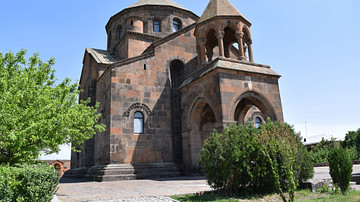
Article
The Differences Between Byzantine & Armenian Christianity
Although both the Byzantines and the Armenians were Christian, the types of Christianity they professed had important differences that led to a lack of recognition and tensions between the two groups and a considerable part of their relationship...